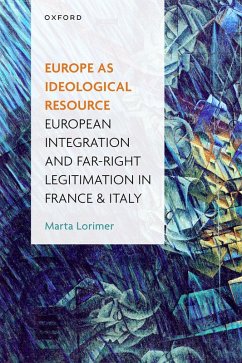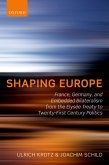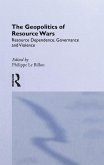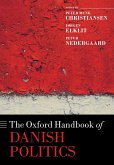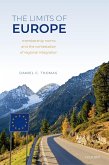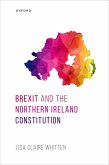How did the far right go from illegitimate fringe to contender for public office, and did Europe have anything to do with it? Europe as Ideological Resource argues that European integration functioned as an ideological resource for far right parties looking for legitimation because it enabled them to refashion their political message in a more acceptable form, while maintaining the allegiance of their existing supporters. Drawing on the qualitative analysis of over 400 documents produced by the Movimento Sociale Italiano/Alleanza Nazionale in Italy (1978-2009) and the Rassemblement National in France (1978-2019), Lorimer identifies the core concepts and discourses the parties used to talk about Europe, and the legitimation mechanisms associated with them. The book's narrative is developed through the analysis of four key concepts: the concept of identity, which enabled the parties to transnationalise their message and create a positive association between themselves and Europe; the concept of liberty, which made it possible for them to foster an image of actors holding uncontroversial positions; the concept of threat, which helped them promote the idea that 'desperate times call for desperate measures; and the concept of national interest, which helped them stress commitment to core principles in their ideology. Ever since its re-emergence on the European political scene, scholars have sought to explain the mainstreaming of the far right. By understanding how the process of European integration facilitated its transition from the margins to the mainstream, this book adds one piece to the puzzle of far right legitimation.
Dieser Download kann aus rechtlichen Gründen nur mit Rechnungsadresse in A, B, BG, CY, CZ, D, DK, EW, E, FIN, F, GR, HR, H, IRL, I, LT, L, LR, M, NL, PL, P, R, S, SLO, SK ausgeliefert werden.

